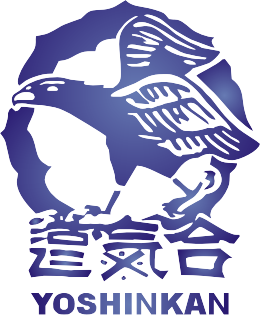Great advice, when you’re dodging punches, but what about words?
The impact area of a punch is approximately four inches in diameter, roughly the size of a soft ball. If you’re lucky enough to see a punch coming, with a simple shift of your feet and the correct timing, you can move off the line of attack and easily avoid a punch to the face.
This is less true with words. Words have longer range and reach; words land when heard and they have a greater potential to penetrate much deeper than a punch.
Words represent the classic two-edged weapon; they can cut in two ways, first in the moment they land, and again, when they remain and resonate with us long after the first cut.
For most of us today, the reality is, we’re more likely to experience verbal violence than physical violence, however the risk for both remains possible. We’ve all had words levelled against us in judgement, blame, and in anger.
And for those of us who have experienced verbal acts of violence, we sometimes carry the scars and the scar tissue, along with the post-traumatic stress, on our journey through life with varying degrees of constraining consequences.
Some of us have the capacity to push through this trauma, and others cope by reacting to everything with a scorched earth approach, and as a result, one violent act provokes another violent act. Or we become intimidated and fearful. And we choose to be shy, cautious and reserved, allowing our values and freedoms to be compromised, and at worst, our hopes and dreams minimized.
We live in a time where words are frequently used as weapons of violence and sometimes unknowingly so, with some very unfortunate and catastrophic outcomes. And with our awareness of this reality, comes a call to action and accountability to change this very negative behaviour in ourselves and others.
Unlearning Violent Behaviour
As babies we begin life authentically non violent. Violence is a learned behaviour. At a very young age the inputs of our experiences and teachings, become our behavioural outputs. Expectations, wants, needs and desires abound and escalate. Playing becomes a game, a game becomes a competition, a competition becomes a fight, a fight becomes a battle, and a battle becomes a war. At one end of this spectrum, relationship is created, and at the other end, relationship is destroyed.
One strength we all have, which becomes a weakness when taken to the extreme, is our natural involuntary system that assists in our survival; namely, our body’s internal hardwiring for fight or flight. For example, a hungry Wolf decides we’re going to be its dinner and attacks us, and as a result, our fight or flight automatically kicks in and we naturally run like hell or fight like our life depends on it, because it does.
Unfortunately, this hardwiring doesn’t serve us well when we over react with a kill-or-be-killed approach to someone who’s just rolled his or her eyes at us in judgement at something we’ve innocently said or done; and then, as a result, we go on to make matters worse, by carrying this pavlovian anger forward with everyone we come into contact with, until we finally cool down, hours or days later.
Without the intellectual, emotional, and relationship skills to manage verbal acts of violence, we humans can easily become victims of verbal violence and perpetrators of it.
We can unlearn violent behaviour and develop the skills and the abilities to recognize the human conditions that give rise to violence, and create for ourselves and others the opportunities to peacefully manage both verbal and physical violence. And in doing so, we exemplify and live our values while providing a stewardship of care, and generating opportunities for maintaining and creating relationship.
Developing a mastery of self-defence skills against physical acts of violence has a rich history of diverse methodology and technique. All societies have their own cultural styles of self-defence that can be found in every corner of our world. Karate, Aikido, Judo, Jujitsu, Taekwondo, and Kung Fu are a familiar sampling of martial arts that exist worldwide. But very few people adopt a continuous practice of these techniques to build their understanding of anatomy, physics, and the biomechanics, and emotional capacity required to deal with physical violence. And, even less of us, take the time to learn about the psychology of human violence and how it escalates, let alone the nature and ways of peace and reconciliation.
We need to learn all three to effectively lead our way through acts of violence, and to help influence and steward others by our example.
If we want to save the world or simply be the best we can be, let’s serve the person next to us and then do the same for ourselves. Leadership, whether of self or others, is about service and sacrifice. An effective leader requires a high degree of emotional and relationship intelligence to be effective at serving and enrolling others; and they’ll also require the physical fortitude to lead themselves and others through acts of verbal and physical violence, and to ultimately create a place of relationship, collaboration, teamwork and community.
Where do we go to discover, learn and build this kind of authentic and complete leadership capacity for ourselves?
Martial Leadership
To build relationships, families, teams, communities, and a better world, we need a deeper knowledge and wisdom about how violence develops and why it occurs. If creating a better human race is something we value and believe in, and we possess a personal passion for becoming a champion of our cause, then we must have practices and disciplined ways for building our complete leadership capacity.
Martial Leadership training develops and provides the clarity of purpose (the ‘Why’), the discovery of our capacity (the ‘What’), the techniques and actions for successful resolution (the ‘How’), and the knowledge and empathy to understand ourselves and others (the ‘How Come’), while supporting our journey of discovering and mastering the authentic leadership capacity that we all have. Martial Leadership enables us to give our very best, stand strong and powerfully for the things we value, allows us to create great relationships, and build a more sustainable world; all while learning and growing in the face of challenge, and successfully living and mastering all that life demands and offers, including dodging the occasional emotional or physical punch to the face.
Authored by Greg Martin for Integrity Arts – Martial Leadership School



